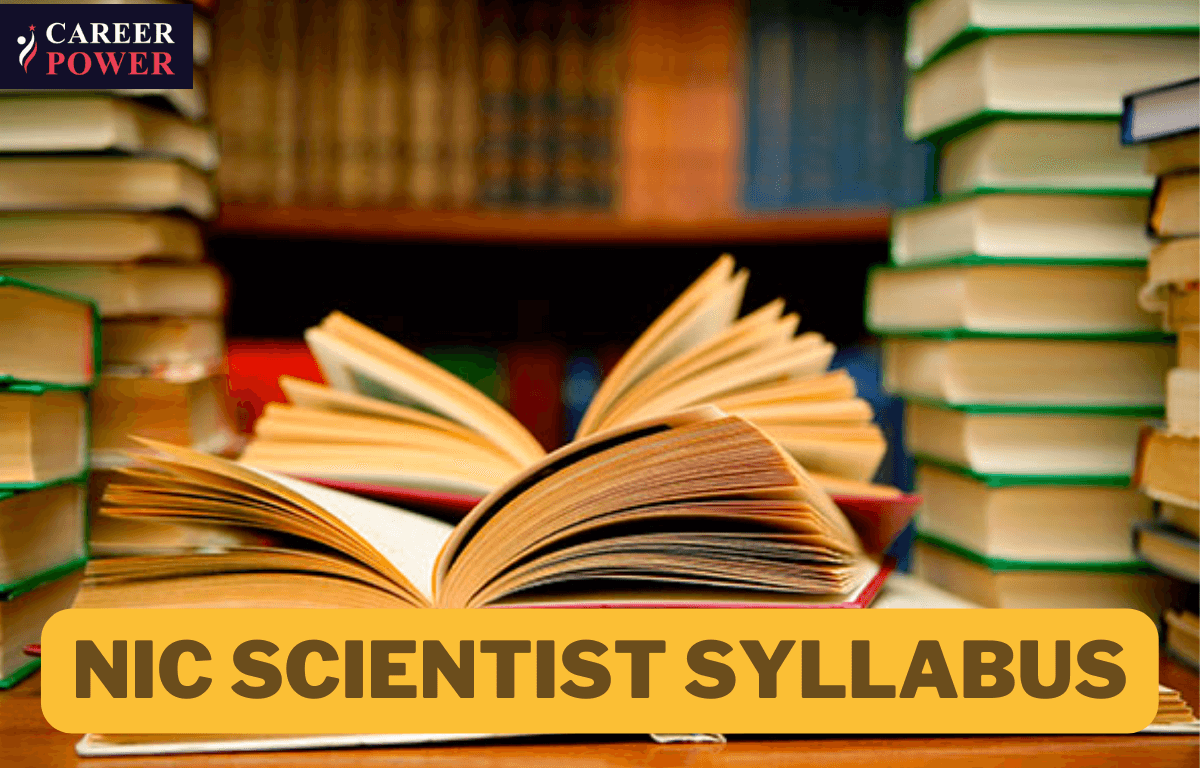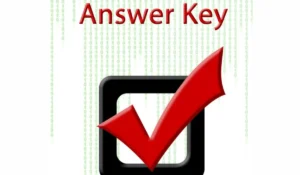National Informatics Centre (NIC) recruits mutiple vacancies for Scientist B and other technical posts for which the candidates have to qualify in written test and interview rounds. To score more than the cut-off marks and get shortlisted for 2nd phase, the candidates must be well prepared with the updated NIC Scientist B Syllabus, Exam Pattern, marking scheme, and other details related to NIC Scientist B Exam. As per the NIC Scientist B Exam Pattern, the online exam consists of two major sections i.e. Technical and Non-Technical. NIC Recruitment 2025 Syllabus for both subjects have been discussed in the article.
NIC Scientist B Syllabus 2025
With the release of NIC vacancies, it’s high time for candidates who are interested in the job profile for Scientist-B, Scientific Officer/ Engineers-B, and Scientific/ Technical Assistant-A posts to prepare as per the NIC Syllabus. Go through the article to know about marking scheme, negative marking, time duration and other details for NIC Scientist B exam from here.
| NIC Recruitment 2025 Syllabus | |
| Recruitment Body | National Informatics Centre (NIC) |
| Exam Name | Scientist-B, Scientific Officer/ Engineers-B, and Scientific/ Technical Assistant-A |
| Vacancies | 598 |
| Category | Syllabus |
| Exam Level | National |
| Mode of Exam | Online |
| Time Duration | 3 hours |
| Marking Scheme | 1 mark for each right answer |
| Negative Marking Scheme | 0.25 mark for each wrong answer |
| Selection Process | Written test- Interview |
| Official Website | https://www.nic.in/ |
NIC Scientist B Exam Pattern 2025
NIC Scientist B Exam Pattern 2025 for technical and Non-technical exams has been discussed below-
- The written examination will consist of 120 Objective type questions.
- Each correct answer carries 1 mark and there is a negative marking of 0.25 marks for every wrong answer.
- The question paper will consist of 65% questions from the Technical section and 35% questions from the Generic/Non-technical section.
- The time duration for the NIC Scientist B Exam 2025 will be 03 hours.
| NIC Scientist B Exam Pattern 2025 |
|||
| Sections | No. of Questions | Marks | Duration |
| Technical | 78 | 78 | 3 hours |
| Non-Technical | 42 | 42 | |
| Total | 120 | 120 | |
NIC Scientist B Syllabus 2025 for Technical Exam
The NIC Scientist B Technical Exam holds maximum weightage and is scoring to get shortlisted for NIC Scientist B posts. Go through the detailed topic-wise NIC Recruitment 2025 Syllabus.
| NIC Scientist B Technical Syllabus 2025 | |
| Chapter | Topics |
| Probability, Statistics and Combinatorics | Conditional Probability, Mean, Median, Mode and Standard Deviation, Random Variables; Distributions, uniforms, normal, Exponential, Poisson, Binomial, Permutations, Combinations, Counting, Summation, generating functions, recurrence relations, asymptotic |
| Digital Logic | Logic functions, Minimization, Design and synthesis of combinational and sequential circuits, Number representation and computer arithmetic (fixed and floating point) |
| Computer Organization and Architecture | Machine instructions and addressing modes, ALU and data path, CPU control design, Memory interface, I/O interface (interrupt and DMA mode), instruction pipelining, Cache and main memory, and Secondary storage. |
| Electrical Engineering | Power Electronics, Signals and Systems, Electromagnetic Fields, Network graph, KCL, KVL, Node and Mesh Analysis, Transient response of DC and AC Networks, Sinusoidal steady-state analysis, Resonance, Superposition theorem, Maximum Power transfer theorem, Three Phase Circuits, Power and Power factor in AC Circuit |
| Analog and Digital Communication | Autocorrelation and power spectral density, properties of white noise, filtering of random signals through LTI systems, amplitude modulation and demodulation, angle modulation and demodulation, spectra of AM and FM, Superheterodyne receivers, circuits for analogue communications, information theory, entropy, mutual information and channel capacity theorem, Digital communications, PCM, DPCM, digital modulation schemes, amplitude, phase and frequency shift keying (ASK, PSK, FSK), QAM, MAP and ML decoding, matched filter receiver, calculation of bandwidth, SNR and BER for digital modulation; Fundamentals of error correction, Hamming codes; Timing and frequency synchronization, inter-symbol interference and its mitigation; Basics of TDMA, FDMA and CDMA. |
| Programming and Data Structures | : Programming in modern languages viz., Java, .Net, Open Source (PHP), Python, GoLang, NodeJS, etc. Functions, Recursion, Parameter passing, Scope, Binding, Abstract data types Arrays, Stacks, Queues, Linked Lists, Trees, Binary search trees, Binary heaps, Object Oriented Programming Concepts- Object, Class, inheritance, Polymorphism, Abstraction and Encapsulation. |
| Algorithms | Analysis, Asymptotic, notation, Notions of space and time complexity, Worst and average case analysis, Design; Greedy approach, Dynamic programming, Divide-and-conquer, Tree and graph traversals, Connected competent, Spanning trees, Shortest paths; Hashing, Sorting, Searching, Asymptotic analysis (best, worst, average cases) of time and space, upper and lower bounds, Basic concept of complexity classes-P, NP, NP-hard, NP-complete |
| Compiler Design | Lexical analysis, Parsing, Syntax directed translation, Runtime environments, intermediate and target code generation, Basics of code optimization |
| Operating System | Processes, Threads, Inter-Process communication, Concurrency, Synchronization, Deadlock, CPU scheduling, Memory management and virtual memory, File systems, I/O systems, Protection and security |
| Databases | ER-model, Relational Model (relational algebra, tuple calculus), Database design (integrity constraints, normal forms), Query languages (SQL), File structures (sequential files, indexing, B and B+ trees), Transactions and concurrency control, NoSQL Databases, questions on the internals of Postgresql. |
| Information Systems and Software Engineering | Information gathering, requirement and feasibility analysis, data flow diagrams, process specifications, input/output design, process life cycle, planning and managing the project, design, coding, testing, Implementation, and maintenance. |
| Computer Networks | ISO/OSI stack, LAN technologies, Flow and error control techniques, Routing algorithms, Congestion control, TCP/UDP and sockets, IP(v4), IP(v6), Application layer protocols, (ICMP, DNS, SMTP, POP, FTP, HTTP, HTTPS), Basic concepts of hubs, switches, gateways and routers. Wireless technologies, Network security -basic concepts of public key and private key cryptography, digital signature, firewalls |
| Web Technologies | HTML5, CSS3, XML, basic concept of client-server computing, web server, proxy server, web application development, MVC Architecture, web services, frontend technologies |
| Cyber Security and Emerging Technologies | Secure programming techniques, OWASP top 10 vulnerabilities, concepts on IoT, Blockchain, AI |
| Cloud Technology | Computer, Network, Storage Management Technologies, Edge Computing |
NIC Recruitment 2025 Syllabus for Non-Technical Exam
The 2nd part is NIC Scientist B Non-Technical Exam 2025 consists of Logical Reasoning, Quantitative Aptitude, and General Aptitude. The NIC Syllabus for Non-Technical exam for each subject has been tabulated below-
| NIC Recruitment 2025 Syllabus for Non-Technical exam | |
| Subject | Syllabus |
| Logical Reasoning | Blood Relations, Clock and Calendar, Ordering & Ranking, Directions & Distances, Arranging words in Meaningful order, Analytical Reasoning Capabilities: Ranking & Time Sequence, Analogy & Data Sufficiency, Input-Output, Syllogisms. |
| Quantitative Aptitude | Number system, Profit and Loss, Work & Time, Time & Distance, Simple Interest & Compound Interest |
| General Aptitude | General Knowledge & Current Affairs |



 CTET Answer Key 2026 Out by 20 Feb, Down...
CTET Answer Key 2026 Out by 20 Feb, Down...
 AP DSC Salary 2026, Pay Scale, Allowance...
AP DSC Salary 2026, Pay Scale, Allowance...
 Indian Army Sepoy Pharma Assistant Recru...
Indian Army Sepoy Pharma Assistant Recru...







